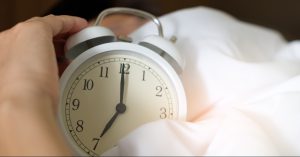Car accidents can have far-reaching effects beyond physical injuries and vehicle damage. One often-overlooked consequence is the disruption they can cause to sleep patterns. Quality sleep is crucial for overall health and well-being, yet car accidents can significantly impair our ability to rest properly. In this article, we’ll explain how car accidents can affect sleep and explore effective strategies for improving sleep quality post-accident.
Effects of Car Accidents on Sleep
Car accidents can lead to various physical injuries, such as whiplash, fractures, and head trauma, all of which can disrupt sleep due to pain and discomfort. Whiplash, for example, can cause neck stiffness and muscle pain that make it difficult to find a comfortable sleeping position. Fractures may require immobilization, leading to discomfort and difficulty getting into a restful position. Head trauma, including concussions, can disrupt the brain’s normal sleep-wake cycle, resulting in fragmented or poor-quality sleep.
Moreover, the psychological trauma resulting from an accident can contribute to sleep disturbances. Post-Traumatic Stress Disorder (PTSD), a common consequence of traumatic events like car accidents, often leads to nightmares, flashbacks, and hyperarousal, all of which can disrupt sleep. Anxiety and depression, which frequently accompany PTSD or arise independently after an accident, can also contribute to sleep problems. Individuals may experience racing thoughts, rumination, and worry, making it challenging to fall asleep or stay asleep.
Additionally, cognitive factors such as hypervigilance can interfere with both falling asleep and staying asleep. After a car accident, individuals may feel on edge, constantly scanning their environment for potential threats. This heightened state of alertness can make it difficult to relax and unwind, further exacerbating sleep difficulties.
Common Sleep Disorders Resulting from Car Accidents
Following a car accident, individuals may experience a range of sleep disorders, including insomnia, sleep apnea, and restless leg syndrome (RLS) or periodic limb movement disorder (PLMD). Insomnia, characterized by difficulty falling or staying asleep, may stem from physical discomfort, psychological distress, or cognitive arousal related to the accident. Physical pain or discomfort from injuries can make it challenging to find a comfortable sleeping position or stay asleep throughout the night. Psychological distress, such as anxiety or depression, can lead to rumination, worry, and intrusive thoughts that interfere with sleep onset and maintenance. Cognitive arousal, including hypervigilance and heightened alertness, can make it difficult for individuals to relax and unwind before bedtime, prolonging the time it takes to fall asleep.
Sleep apnea, exacerbated by weight gain or physical injuries, can lead to fragmented sleep and daytime fatigue. Individuals with obstructive sleep apnea experience repeated pauses in breathing during sleep, often accompanied by snoring or gasping for air. These disruptions can prevent individuals from reaching deep, restorative stages of sleep, resulting in daytime sleepiness and fatigue.
RLS and PLMD may worsen post-accident due to heightened stress levels, further disrupting sleep architecture. Restless leg syndrome is characterized by uncomfortable sensations in the legs, often described as tingling, crawling, or aching, that worsen at rest and are relieved by movement. Periodic limb movement disorder involves repetitive movements of the legs during sleep, which can lead to frequent awakenings and fragmented sleep.
Strategies to Improve Sleep Post-Car Accident
Fortunately, there are various strategies individuals can employ to enhance sleep quality after a car accident.
- Medical Interventions: Seek medical help for targeted treatments addressing pain and psychological distress, including prescription medications and therapies like CBT for insomnia (CBT-I). Consultation with a healthcare provider is essential to determine the most suitable interventions for individual needs.
- Complementary Therapies: Explore alternative therapies like acupuncture or massage to alleviate physical discomfort and promote relaxation. These complementary approaches can complement traditional medical treatments and enhance overall well-being.
- Sleep Aids and Devices: Consider over-the-counter sleep aids or wearable sleep trackers to regulate sleep patterns and provide insights into sleep quality. These tools can empower individuals to take an active role in monitoring and improving their sleep post-accident.
- Environmental Modifications: Optimize the bedroom environment for sleep by controlling lighting, temperature, and noise levels to create a calm and comfortable atmosphere. Simple adjustments to the sleep environment can have a significant impact on sleep quality and overall well-being.
- Relaxation Techniques: Incorporate relaxation practices such as deep breathing exercises or guided imagery into a bedtime routine to ease tension and promote sleep. These relaxation techniques can help individuals unwind and prepare for a restful night’s sleep.
- Behavioral Changes: Establish a consistent sleep schedule, prioritize relaxation before bedtime, and limit caffeine and alcohol intake to improve sleep hygiene and promote better sleep quality. Making these behavioral changes can lead to long-term improvements in sleep patterns and overall health.
By implementing a combination of these strategies, individuals can effectively address sleep disturbances post-car accident and improve their overall sleep quality and well-being.
Lifestyle Modifications for Better Sleep
Incorporating lifestyle modifications can also contribute to improved sleep post-accident.
- Regular Exercise: Tailored to individual physical limitations, can promote better sleep quality and mood regulation. Engaging in physical activity during the day can also help reduce stress and anxiety, making it easier to relax and unwind before bedtime.
- Balanced Diet: Avoiding heavy meals before bedtime and including sleep-promoting nutrients in one’s diet can support healthy sleep. Consuming foods rich in sleep-promoting nutrients, such as tryptophan, magnesium, and melatonin, can help regulate sleep patterns and promote relaxation.
- Effective Stress Management Techniques: Such as meditation, yoga, or seeking social support, can further alleviate stress and anxiety, fostering a conducive environment for restorative sleep.
Car accidents can have profound implications for sleep quality, but there are numerous strategies individuals can employ to mitigate these effects and improve their sleep post-accident. By addressing both the physical and psychological factors contributing to sleep disturbances, individuals can take proactive steps towards achieving better sleep and overall well-being. Seeking professional help and implementing a multifaceted approach encompassing medical, behavioral, and lifestyle interventions is key to reclaiming restful sleep after a car accident. With time, patience, and perseverance, individuals can overcome sleep disturbances and enjoy the benefits of restorative sleep once again.








